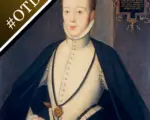
On This day in Tudor history, 7th December, Mary, Queen of Scots’ second husband, Henry Stuart, Lord Darnley, was born (1545), and rebel leader Robert Kett was hanged from the walls of Norwich Castle (1549)…
[Read More...]
On This day in Tudor history, 7th December, Mary, Queen of Scots’ second husband, Henry Stuart, Lord Darnley, was born (1545), and rebel leader Robert Kett was hanged from the walls of Norwich Castle (1549)…
[Read More...]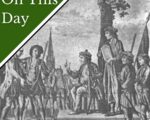
On this day in Tudor history, 8th July 1549, in the reign of King Edward VI, Kett’s Rebellion began.
Robert Kett, a Norfolk farmer, agreed to lead a group of protesters who were angry with the enclosure of common land. The protesters marched on Norwich, and by the time they reached the city walls, it is said that they numbered around 16,000.
[Read More...]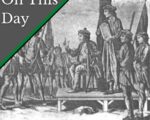
On this day in Tudor history, 7th December 1549, in the reign of King Edward VI, Robert Kett, the former leader of Kett’s Rebellion, was executed.
The rebel leader was hanged from the walls of Norwich Castle after being found guilty of treason. His brother William was hanged the same day, but from the steeple of Wymondham Church.
You can find out all about Robert Kett and his rebellion in this video:
[Read More...]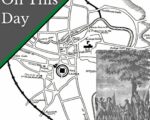
On this day in Tudor history, 25th August 1549, in the reign of King Edward VI, the rebels of Kett’s Rebellion launched an attack on the south side of Norwich and burned a number of buildings.
Kett’s Rebellion lasted from July 1549 until the 27th August 1549, when they were defeated by Crown forces at the Battle of Dussindale.
But what was it all about? What were the rebels’ grievances?
Find out more about this rebellion…
[Read More...]
On this day in Tudor history, 7th December 1549, rebel leader Robert Kett was hanged from the walls of Norwich Castle after being found guilty of treason. His brother William was hanged the same day, but from the steeple of Wymondham Church.
In 1549, Kett was seen as a rebel and traitor who endangered the city of Norwich, but today Norwich pays tribute to him as “a notable and courageous leader in the long struggle of the common people of England to escape from a servile life into the freedom of just conditions”.
Find out all about Robert Kett and Kett’s Rebellion in this talk…
[Read More...]
On this day in Tudor history, 7th December 1549, rebel leader Robert Kett was hanged from the walls of Norwich Castle after being found guilty of treason. His brother William was hanged the same day, but from the steeple of Wymondham Church.
In 1549, Kett was seen as a rebel and traitor who endangered the city of Norwich, but today Norwich pays tribute to him as “a notable and courageous leader in the long struggle of the common people of England to escape from a servile life into the freedom of just conditions”. Find out all about Robert Kett and Kett’s Rebellion in today’s talk.
[Read More...]
On this day in Tudor history, 25th August 1549, Robert Kett and his rebels launched an attack on the south side of Norwich and burned a number of buildings.
Kett’s Rebellion lasted from July 1549 until the Battle of Dussindale on 27th August 1549, but what was it all about? What were the rebels’ grievances?
Find out more about this rebellion in the reign of King Edward VI in today’s talk.
[Read More...]
July 1549. The almost twelve-year-old Edward VI had been King of England for two-and-a-half years. Landlords had begun enclosing the common lands, which prevented peasants from being able to have a place for their animals to graze. Several landlords had taken to raising sheep, as the English wool trade was growing quite prosperous. This, in concert with a host of other problems such as inflation and unemployment, led to unrest for the lower classes.
After Edward Seymour, Lord Protector, had issued a proclamation on behalf of Edward VI that made enclosures illegal, several peasants tore down a fence that was raised in the town of Attleborough. On 6 July, the town of Wymondham was observing the illegal feast day for Thomas Beckett. Henry VIII had outlawed any such celebrations or commemorations of Thomas Becket back in 1538. After the festivities, some revellers got together and decided to dismantle some of the enclosures. This was the beginning of the Norfolk uprising and posed a significant threat to the Lord Protector’s government.
[Read More...]
On 27th August 1549, the Battle of Dussindale took place, ending Kett’s Rebellion in Norfolk.
[Read More...]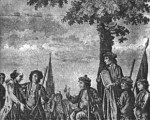
8th July 1549 was the beginning of Kett’s Rebellion. Robert Kett, a Norfolk farmer, agreed to lead a group of protesters who were angry with the enclosure of common land. The protesters marched on Norwich, and by the time they reached the city walls, it is said that they numbered around 16,000.
[Read More...]